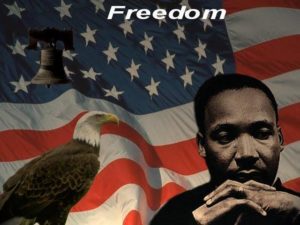
The recent rashes of mysterious murder and mutilation of young black males like Florida’s Trayvon Martin and Georgia’s Kendrick Johnson and now the fatal shooting of Renisha McBride in Michigan are indicators that the concept of American colorblind judicial justice is a fallacy.
The lack of enthusiasm exhibited for locating and prosecuting the perpetrators responsible for the deaths of these African-Americans has been the response to Black people seeking justice since the beginning of this country’s existence. America’s inability to appropriately identify hate crimes committed against people of color should no longer be tolerated in “post-racial” 2013.
The Casual Killing Act of Virginia was a doctrine adopted in 1669 by the entire country as a means of protecting a white man against the threat of suffering consequences for the murder of any person of color. In the event a slave died in the process of a master’s punishment, the law prevented the murderer to be charged as such. This mentality lead to careless acts of violence against Black people. Mississippi was the last state in America to physically remove such protection from their books in 1985, according to Post Traumatic Slave Syndrome: America’s Legacy of Enduring Injury and Healing by Dr. Joy Degruy.
Some people of color have been convinced the civil rights fight for African-Americans is over because of the strides made when we “successfully” integrated the public education system and implemented affirmative action to make quality employment more attainable for minorities. Yet despite these victories, the Black community still experiences a higher rate of incarceration and harsher sentences than any other race.
If George Zimmerman can shoot and kill Trayvon Martin and serve no time in jail because of Florida’s Stand Your Ground law, surely Marissa Alexander of Jacksonville, the Black woman who fired a harmless warning shot to defend herself against her abusive husband, can avoid the 20-year sentence handed down to her.
In The Soul of Black Folks by W.E.B. Dubois described the creation of the police force as a means to keep control of the newly freed people after emancipation. The 13th Amendment abolished slavery and involuntary servitude, except as punishment for a crime.
“[The] police system was arranged to deal with ‘blacks alone,'” DuBois wrote, illustrating how this produced a double system of justice using the courts as a means of re-enslaving blacks.
African-Americans are scrutinized under laws to be classified as criminals, thus returning them to their original purpose in this country: To be used as source of free or very cheap labor.
In Michelle Alexander’s “The New Jim Crow: Mass Incarceration in the Age of Colorblindness,” she explains how racism plays a role in creating policies aimed at keeping people of color in the criminal class.
[“Civil] Rights protests were frequently depicted as criminal rather than political in nature. Proponents of racial hierarchy found they could install a new racial caste system without violating the law or the new limits of acceptable political discourse by demanding ‘law and order,” she wrote.
“The Condemnation of Blackness: Race, Crimes, and Making of Modern Urban America” by K.G. Muhammed, explains that Black people have also been denied essential materials to combat criminality in their communities.
He wrote: “White social workers and white philanthropists failed to invest sufficient material resources into the uplift of African-American urbanites, advising these communities to ‘work out their own salvation’ before others could help them starting in 1890.”
Obtaining equality and civil liberties have never been easy to achieve in America for people of color. But to realize our true goal of a post-racial society, we must challenge and change judicial policies that deprive African-American citizens of fair jail sentencing, incarceration and financial penalties.
Yes, we can go into any store, drink from any water fountain and use public restrooms, but we still cannot expect to be treated equally in the courts. We cannot live comfortably in these United” States of America until we secure judicial affirmative action.
Judicial Affirmative Action is a set of guidelines set to ensure jail sentences would not be distributed according to race. All criminals, regardless of race,should get the same amount of time for commuting the same crime. If a white drug dealer is caught with methamphetamine, they should be forced to serve the same amount of time as a black male who was caught with a minimal amount of marijuana. Under JAA, people would read over the facts of the case and not be allowed to know the race of perpetrators. The jury will represent the defendant in race and ideology.
Judicial Affirmative Action will either help keep blacks jail sentences down or white jail sentences up.
-Sayuri Smith


